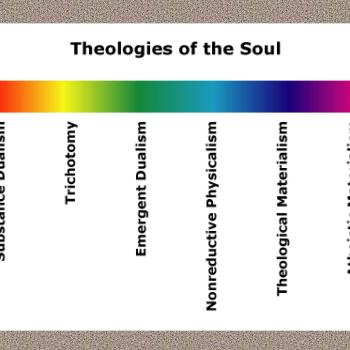Granted, virginity and celibacy are not topics that countenance a lot of enthusiasm among people these days. It wasn’t too popular in 4th century Milan either. Ambrose seemed to indicate his own trepidation regarding the topic at the onset of his treatise entitled, Concerning Virgins. He wrote, “. . . distrusting indeed my own ability, but encouraged by the instances of divine mercy, I venture to compose an address, for when God willed [in the book of Numbers], even [Balaam’s jack] ass spoke. Therefore I will open my mouth long dumb that the angel may assist me also, engaged in the burdens of this world, for He can do away with the hindrances of unskillfulness as in the case of that jackass did [He do also] away with those of nature.”
Ambrose believed that because there is no marriage in heaven (see Mk. 12 for this and elsewhere), and therefore, at least from the standpoint of Christian morality, no sex, virginity best emulated life in heaven. If marriage is a foretaste of the relationship between Christ and the church, and sex likewise a foretaste of our ultimate and intimate union with God, Ambrose deduced that devoted virginity simply dispenses with the appetizers and skips on to the main course. “Virginity, celibacy has brought from heaven that which it may imitate on earth,” Ambrose argued, “and not unfittingly has virginity sought her manner of life from heaven, who has found for herself a Spouse in heaven. . . . Those who marry not nor are given in marriage are as the angels of heaven [quoting Jesus].” Celibate people are akin to angels.
Ambrose conceded celibacy to be a difficult lifestyle, yet nevertheless one brimming with advantages. Ambrose maintained that virginity, by virtue of its angelic link to Christ, endued one with exceptional spiritual strength with which to overcome powers unseen guaranteeing “victory not only over the lusts of the flesh but also over the prince of the world and the ruler of this age!” In addition, celibacy also freed one from the immodest temptations of dress and behavior, freedom from greed as well as an unusual interior peace. Not having to worry about pleasing a husband or a wife, increased time and energy were now available to devote to your true Spouse, Jesus Christ. This was, after all, the only nuptial relationship that death would not part.
Ambrose was not anti-marriage at all; however, he would be the last choice as patron saint of Focus on the Family or other pro-marriage movements. Ambrose would have been perplexed by religious traditions that exalted marriage and parenthood as sublime spiritual states. He viewed marriage as mainly a distraction from the truly important things of the soul. Again quoting Jesus, Ambrose reminded women, who yearned for husbands and children that, “The days shall come when they shall say: ‘Blessed are the barren, and the wombs that never bore.’ For the daughters of this age are conceived, and conceive; but the daughter of the kingdom refrains from wedded pleasure, and the pleasure of the flesh, that she may be holy in body and in spirit.”
While we would reject, as did Augustine, Ambrose’s odd assertion that sex was a result of the fall, we would be hard-pressed to disagree that marriage does bring a certain level of emotional and behavioral stress. Simply planning a wedding can drive some to divorce before the ceremony ever occurs. Indeed the potential for heartache is persistent. Ambrose counters these and other problems by exclaiming: Happier are you who never marry! You “know not such torments. You know nothing of the burden and pain [of a demanding husband] nor of childbearing; yet more are the offspring of your pious soul, which esteems all as its children, which is rich in successors, barren of all bereavements, which knows no deaths, but has many heirs. . . . You have no husband but Christ as your bridegroom inasmuch as you [like holy church] without any loss of modesty weds the Word of God as Your Eternal Spouse, free from all injury, full of reason. Love him.”
Ambrose found biblical justification for his endorsement of virginity in 1 Corinthians 7. There Paul writes, “It is good not to marry . . . those who marry will face many troubles in this life, and I want to spare you this. I would like you to be free from concern. An unmarried man is concerned about the Lord’s affairs -- how he can please the Lord. But a married man is concerned about the affairs of this world -- how he can please his wife -- and his interests are divided. An unmarried woman too is concerned about the Lord’s affairs: Her aim is to be devoted to the Lord in both body and spirit. But a married woman is concerned about the affairs of this world -- how she can please her husband. I am saying this for your own good, not to restrict you, but that you may live in a right way in undivided devotion to the Lord.”





